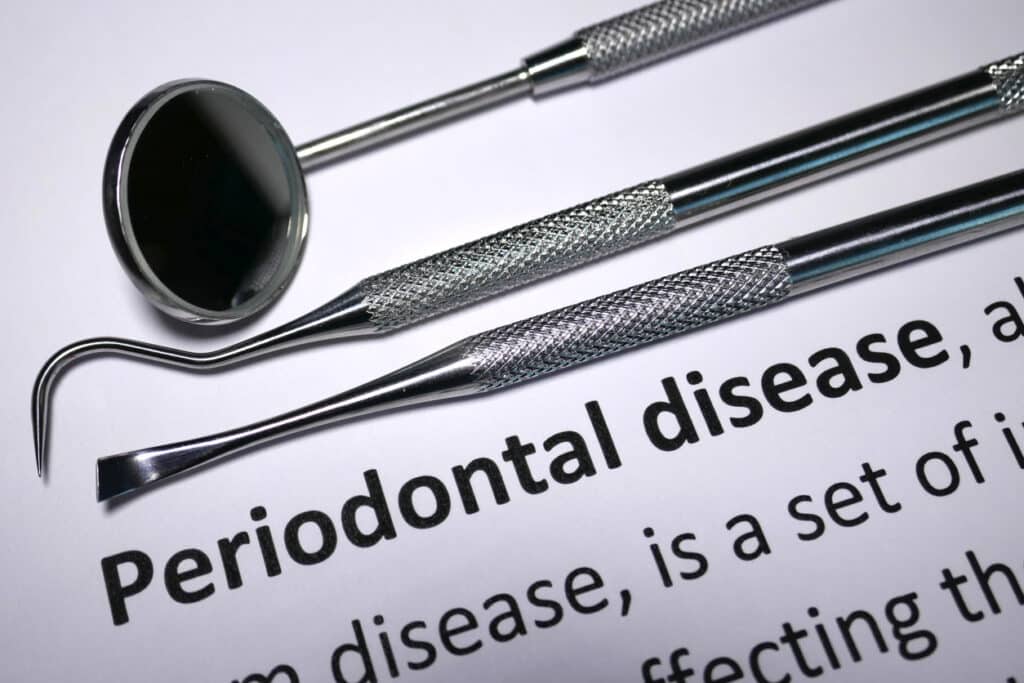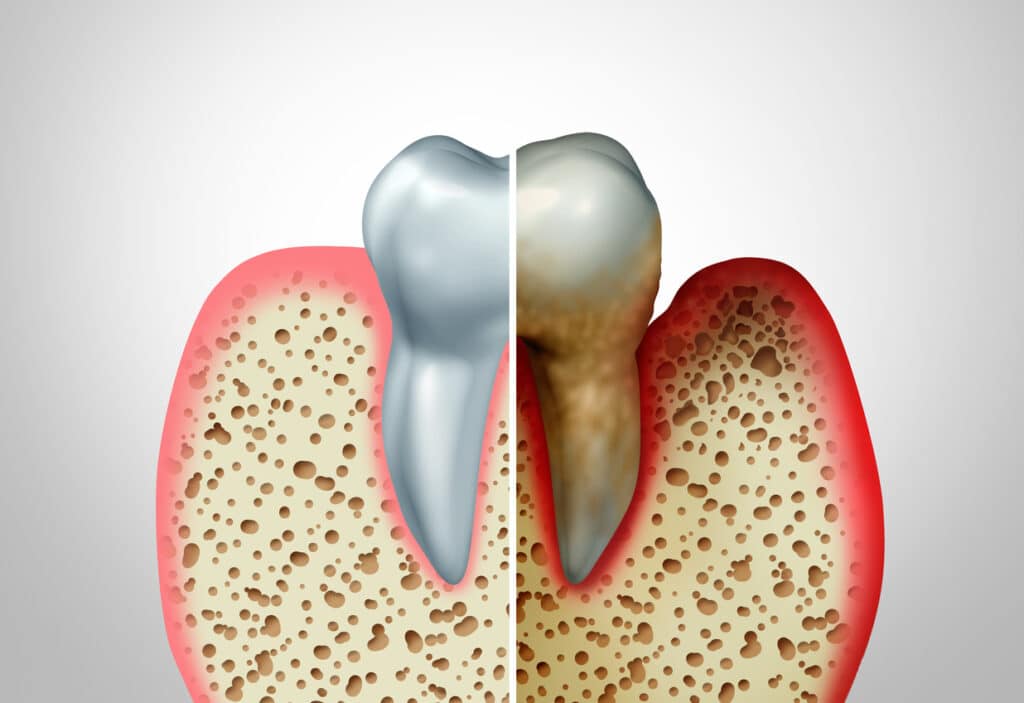About Periodontal Disease
Periodontal (gum) disease is an infection of the tissue that surrounds and supports the teeth. A leading cause of tooth loss, it is most often caused by a buildup of plaque on the teeth. Plaque is a sticky film of bacteria that can be brushed and flossed away with proper oral care. However, when left on the teeth, plaque produces toxins that attack below the gum line and in the crevices between the teeth and gums, causing the bond between teeth and gums to break down.
In the early stage of gum disease, a condition known as gingivitis, in which gums may become red, swollen and bleed easily, can occur. In the more advanced stages of periodontal disease, teeth can loosen and even fall out. Good oral hygiene and regular dental examinations are essential in the prevention and early detection of gum disease.
Symptoms Of Periodontal Disease
In cases of early-stage periodontal disease, there are often no noticeable symptoms, although damage to the gums is occurring. As the disease progresses, patients may experience:
- Gums that are red, swollen, tender, bleed easily or have pulled away from the teeth
- Persistent bad breath
- Loose or separating teeth
- Pus coming from the gums
- A change in the way the teeth fit together
- A change in the fit of partial dentures
Diagnosis Of Periodontal Disease

Once symptoms are detected, a periodontist usually performs a series of tests in order to determine the severity of the condition and extent of the damage. The dentist may request the patient’s full medical history and look for underlying conditions; take X-rays; and perform an examination with a dental probe to detect any periodontal pockets.
What Causes Periodontal Disease?
Most cases of periodontal disease develop because of bacterial plaque that builds up on teeth over time. Plaque is a sticky, colorless film that stimulates an inflammatory response, and causes the body to attack itself. If it is not removed, it hardens and causes tartar, which cannot be removed through brushing at home, to develop on the teeth. The tissue and bone that support the teeth are gradually destroyed by this process.
Although plaque is the most common cause of periodontal disease, lifestyle or hereditary factors play a significant role in the health of the gums. Some patients may be at a higher risk for developing periodontal disease because of their habits. Some of the risk factors for these dental conditions include:
- Tobacco smoking or chewing
- Systemic diseases such as diabetes
- Medications such as steroids, anti-epilepsy drugs, cancer therapy drugs and calcium channel blockers
- Pregnancy or use of oral contraceptives
- Crooked teeth
- Worn bridges or fillings
Patient Testimonial
"I have been a patient of Dr. Randy Fong for nearly 30 years and would highly recommend him. He and his entire staff are true professionals in every way. They not only treat you as a patient. but as family also. Thank you Randy for all these years of excellent service."
- J Moore
Treatment Of Periodontal Disease
A patient is normally referred to a periodontist to treat periodontal disease. Periodontal disease is treated based on its severity and progression. Treatment may include:
Scaling And Root Planing
This is a deep-cleaning method that removes bacteria from below the gum line and the tooth root.
Medication
Antibiotics or antimicrobial medications may be used to fight infection, and reduce the size of the gum pockets that have occurred because of the periodontal disease.
Surgery
If other methods of treatment are ineffective, flap surgery may be performed to lift away gum tissue so that it can be cleaned underneath. Gum or bone grafts may also be performed to help regenerate any bone or gum tissue that may have been damaged or lost due to periodontitis.
How Can You Prevent Gum Disease?

The risk of developing gum disease can be reduced by practicing proper oral hygiene. This includes thoroughly brushing the teeth at least twice a day, and flossing at least once a day. It is important for patients to practice proper brushing and flossing techniques to ensure that teeth are adequately cleaned.
Seeing a dentist for a professional cleaning on a regular basis is also essential to maintaining dental health. The dentist will recommend other prevention techniques to maintain oral health and prevent gum disease. Eating a balanced diet and avoiding smoking can also help maintain dental health.
